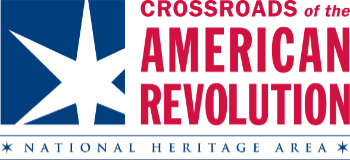Biography People
John Vought Full Biography
I was born in 1750 into the family of Christopher and Cornelia Vought of the German Lutheran community at New Germantown. In 1759 my family moved to a 285 acre farm along the Raritan River near the important Union Iron works. In November 1772 I married Mary Grandin, the daughter of Quakers Phillip and Eleanor Grandin. About this time my father was getting on in years and turned over the family property to me and I became the new patriarch of the family. My father and I were prominent in Lebanon Township and both held public offices during the years of protest leading up to the Revolution. I was elected town clerk in 1774 at the tavern of our neighbor Thomas Jones who was himself elected to the New Jersey Provincial Congress in 1775. Just one month before Lexington and Concord, in March 1775, I was re-elected township clerk.
At first I signed the Association like those who protested Parliament’s actions and attended militia drills, even though I did not agree with the protests. However, I was among the men who refused to serve in the patriot militia when it was called out and shortly after Royal Governor William Franklin was ordered to be arrested by the Provincial Congress, I was one of several men of Hunterdon County ordered to appear before the Provincial Congress on June 25, 1776. Some resistance to militia duty was the need to complete farm work in the proper season or our families would be ruined. Some of the resistance, though, was in protest against the usurping of legitimate authority. Traditionally, New Jersey farmers formed groups with clubs to fight for our rights. When a militia muster was held in Lebanon Township in June 1776 to recruit men for a five-month state militia regiment, one witness wrote that “one half of Two Companies Came with Clubs, Colonel Johnson was knocked down by them & was Afterwards Obliged to Retreat, the Same day one of the Capts. Was much beat by them.”
On June 24 iron works manager Joseph Lee and I led two dozen men with clubs to Captain Thomas Jones’ tavern at about midnight. We began to beat up John Shurts when Captain Jones in the basement heard us and ran upstairs with his gun. He threatened to “blow our brains out” if we didn’t leave. We answered his effrontery of pointing his gun at us by twisting it out of his hands and beating him on the head and body with our clubs. We were ordered arrested by the Provincial Congress and were held in the Hunterdon County jail for almost two weeks. My father and I were each fined £100. To us, club wielding violence was a natural form of protest against unjust official actions. We were not criminals, but honest men standing for and then being arrested and fined for our principles. We were fighting to support a legal government, unlike the rebels who fought against the legal government as traitors.
In December 1776 while the rebel army was retreating through New Jersey pursued by British and Hessian forces, my father and I helped lead 75 Hunterdon County loyalists to join the British forces at New Brunswick. Once there we enlisted in the New Jersey Volunteers, the largest group of provincial troops raised to help put down the rebellion. I wore a green uniform with white lapels and served as lieutenant in the Sixth Battalion under my friend Captain Joseph Lee. For the rest of the war I fought as a military officer, not as a lawless refugee or retaliator as other loyalists did.
When the war ended my family went to Nova Scotia where we lived in exile for eight years. In 1792 we returned to America to claim the 2000 acres I still owned near Albany, New York and I settled my family there. I divided the property and gave half to my sister’s son whom I had raised after my sister died giving birth to him. My family, including my two aging parents, my wife, eight children, and two slaves lived on the other 1000 acre parcel. I died September 3, 1803 and was buried on a knoll in a small cemetery enclosed by a stone wall on my New York farm in Duanesburg, Schenectady County.
FURTHER SOURCES
Sherblom, Donald. Neighbors at War: The Vought Family and the Revolution.
The Vought House is being restored as an historic site and the only Loyalist museum in New Jersey. See:http://1759voughthouse.org/
